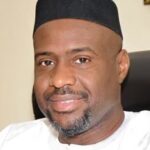Conservative Party leader and UK government minister Kemi Badenoch has stated that she no longer identifies as Nigerian and has not renewed her Nigerian passport since the early 2000s. Speaking on the Rosebud podcast hosted by former MP Gyles Brandreth, Badenoch said that while she is “Nigerian through ancestry,” she does not identify with the country by lived experience or current affiliation.
Born in the UK, Badenoch spent much of her childhood in Nigeria and the United States before returning to Britain at age 16. She said her return was prompted by Nigeria’s worsening political and economic conditions and her parents’ desire for her to pursue a better future abroad. “There is no future for you in this country,” she recalled her parents telling her, explaining the emotional reason behind their decision to send her back to the UK.
Now a senior Conservative figure and one of the most influential Black politicians in Britain, Badenoch reflected on how her experiences in Nigeria shaped her worldview, especially her aversion to socialism. She described growing up in Nigeria as difficult, marked by political instability and insecurity. “I remember never quite feeling that I belonged there,” she said, recalling her return to the UK in 1996 with a sense of belonging and relief: “This is home.”
Badenoch has faced backlash for her comments on Nigeria before. At the end of 2023, she was criticized for describing Nigeria as a country plagued by corruption and insecurity during her youth. Nigeria’s Vice President, Kashim Shettima, responded at the time, accusing her of “denigrating her nation of origin.” A spokesperson for Badenoch dismissed the criticism, emphasizing her right to speak openly about her lived experiences.
Despite her roots and family connections to Nigeria, Badenoch revealed that she no longer holds a Nigerian passport and had to obtain a visa to visit when her father passed away. “It was a big fandango,” she said, further noting that she’s never felt the need to renew it. “Most of my life has been in the UK. I’ve just never felt the need to,” she added.
Badenoch also addressed race and identity in the UK, saying she had never experienced racial prejudice “in any meaningful form.” She said she was aware she would look different from most people in the UK but was pleasantly surprised by how well she was treated. “It’s why I’m so quick to defend the UK whenever there are accusations of racism,” she explained.
Though her roots trace back to Nigeria, Badenoch emphasized that her current sense of identity, home, and belonging rests firmly in the UK. Her comments have reignited debate in both the UK and Nigeria about identity, migration, diaspora, and national loyalty, especially at a time when many African-born leaders are navigating complex relationships with their countries of origin.
This latest revelation adds to the growing profile of Kemi Badenoch as a controversial yet influential figure in British politics, often unafraid to speak candidly about race, culture, and personal history, even when it provokes criticism from her country of heritage.













Leave a comment